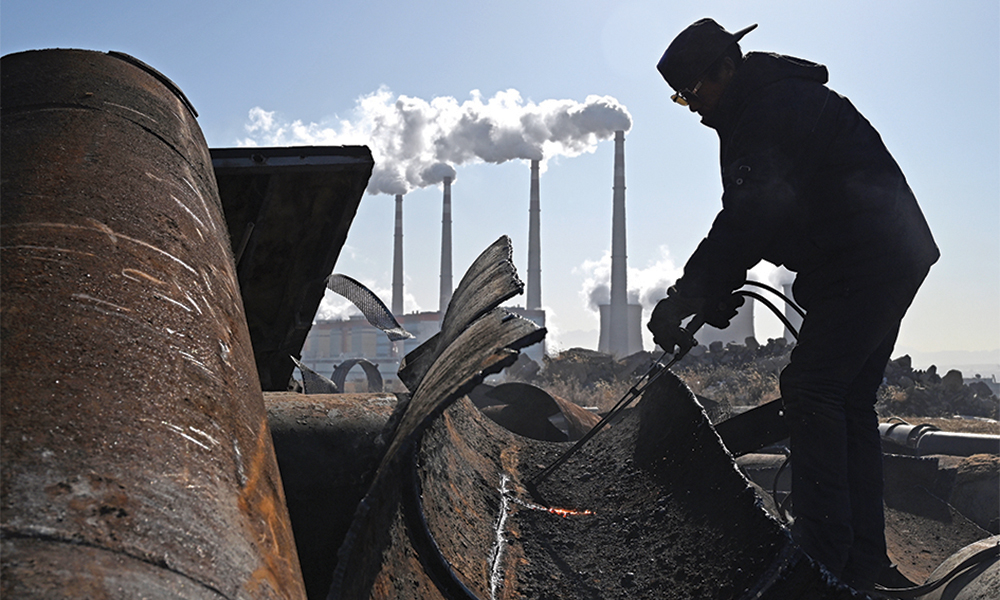BEIJING: A property downturn, slowing economy and war in Ukraine loom large over this week’s annual convening of China’s legislature, with policymakers expected to focus on shoring up faltering growth. The rubber-stamp parliament starting Saturday in Beijing gathers some 3,000 members of the National People’s Congress (NPC) for highly choreographed meetings over bills, budgets and personnel changes.
The ruling Communist Party uses the opportunity to tout its achievements while also setting the country’s economic blueprint and GDP target for the year ahead. Much of the NPC’s agenda is unknown until during-or even after-the multi-day meeting, with many sessions taking place behind closed doors.
But this year, concerns are bound to centre on the country’s sluggish economic growth, partly down to a crunch in the crucial property sector-which makes up as much as a quarter of national output. Stringent “zero-COVID” measures including harsh lockdowns and closed borders have also been a major blow to manufacturing hubs, tourist centres and port cities. Meanwhile, the Russian invasion of Ukraine has raised the prospect of spiking food and oil prices, with fears over supplies of crucial commodities from the region being affected. Commerce Minister Wang Wentao admitted to journalists this week that China’s economy faces “huge” pressure this year.
GDP and stability
Beijing traditionally announces its new economic growth target at Premier Li Keqiang’s annual “state of the nation” speech at the NPC, followed by his rare-but heavily stage-managed-press conference. China’s GDP growth slowed sharply in the final months of 2021 despite an earlier pandemic bounceback, as it grappled with tepid domestic demand and a property downturn.
The country’s communist leaders have long based their legitimacy on the argument that their model of government represents economic growth and continuity for China’s massive population. But as much of the rest of the world now reopens, China is increasingly out of step, as continued COVID-19 restrictions weigh on consumer confidence.
Maintaining stability will be crucial as the Communist Party gears up for a pivotal meeting this fall-the 20th party congress-that is expected to easily secure President Xi Jinping a third term. In 2020, there was no GDP target set at all, and last year Li announced a modest goal of “above six percent”. Amid the unpredictability, analysts expect Beijing to announce a similarly open and attainable target this year. “We expect the growth target to be set at ‘above five percent’,” UOB economist Ho Woei Chen said in a recent report, adding that pace would match the past two years’ average of 5.1 percent.
Iris Pang, ING’s chief economist for Greater China, expected the range could be higher after the country easily exceeded last year’s target. And infrastructure would probably form a key part of the government’s support for the economy, predicted ANZ Research senior China strategist Zhaopeng Xing. He expected “double-digit growth in infrastructure investment” in the first quarter, on top of tax cuts and the central bank’s earlier interest rate cuts. — AFP










